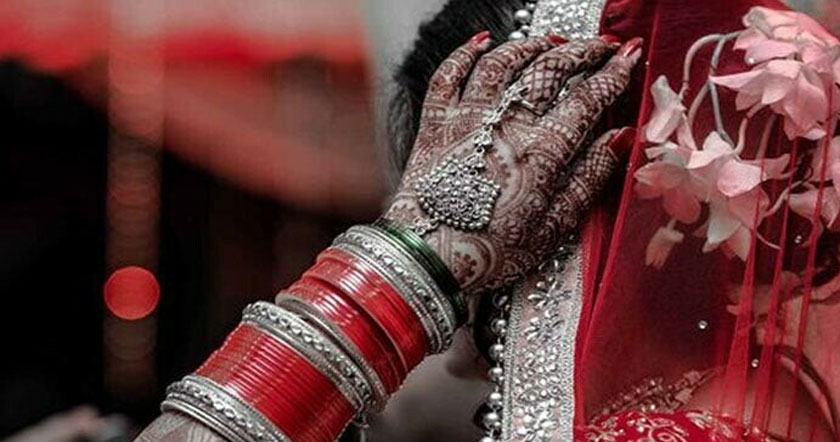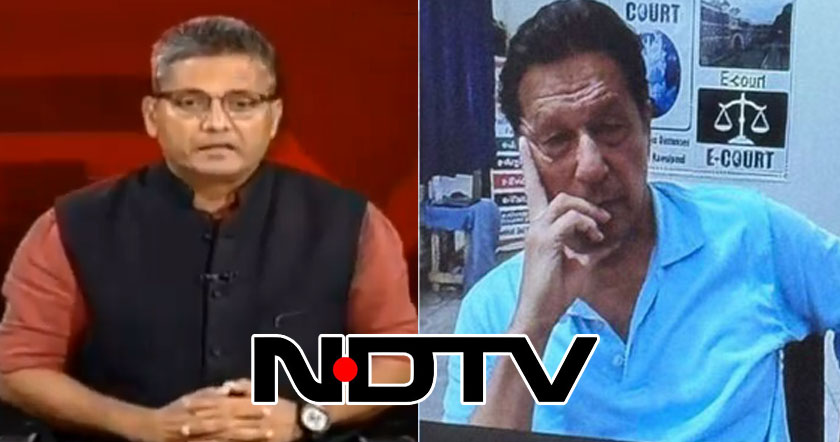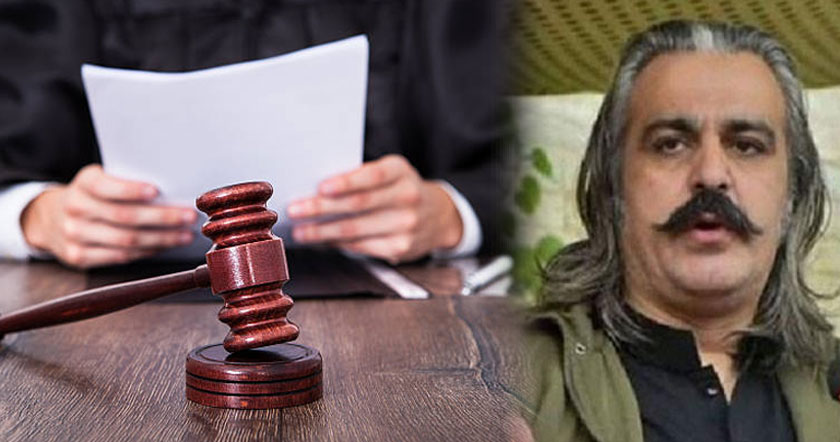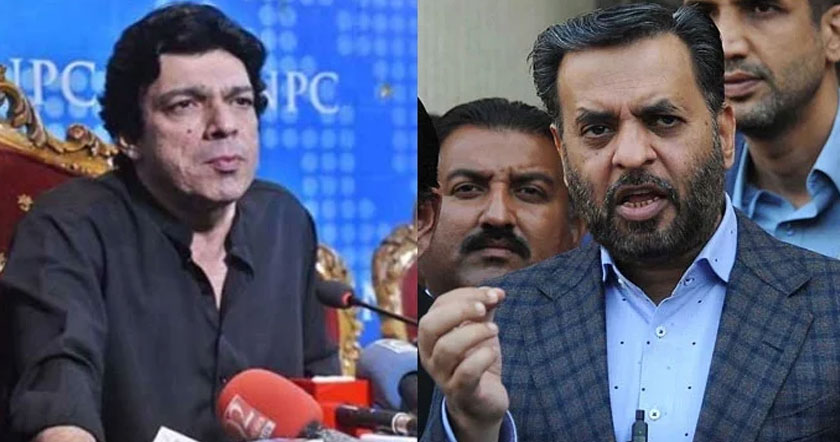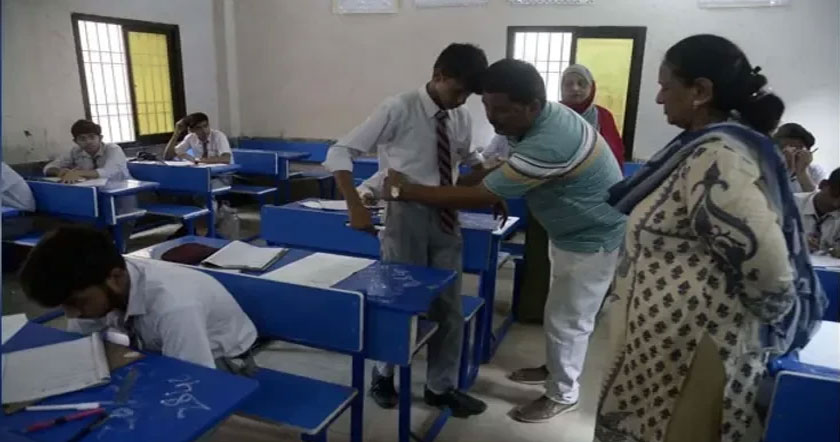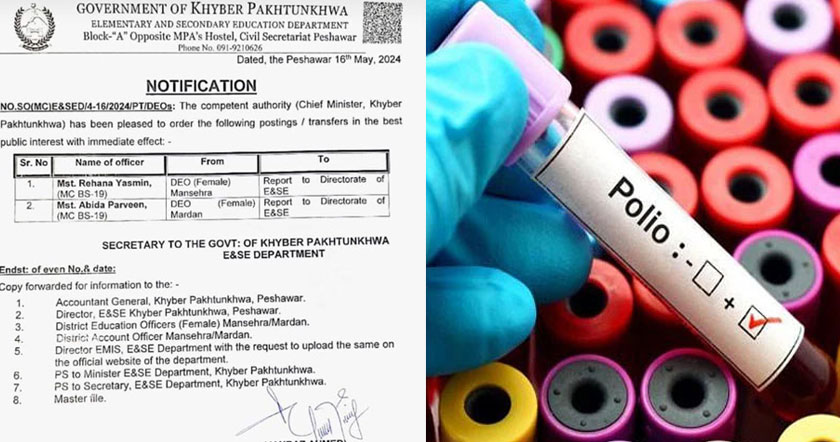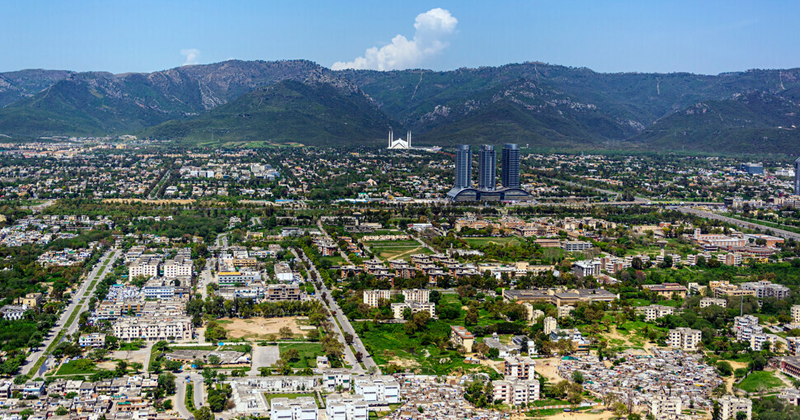
AP Unity dreams deferred Jinnah after being sworn in as Pakistan’s head of state on August 14, 1947
Counter-History
What If Attlee Hadn’t Partitioned India?
The biggest hypothetical question of the subcontinent
Zareer Masani
To persuade Jinnah, already dying of tuberculosis, to abandon his largely tac*tical demand for Pakistan, an indep*e*ndent state carved out of India’s Muslim-majority provinces, Mahatma Gandhi has given him the premiership of a coalition government at the centre. Nehru, whose arrogance and insistence on the top job had alienated Jinnah, has been slapped down in a realignment of the Congress leadership: Gandhi joining forces with anti-Nehru conservatives like Sardar Patel and Chakravarty Rajagopalachari (Rajaji).
Nehru had been collaborating closely with Lord ‘Dickie’ Mountbatten, sent as viceroy by the new Labour government to “cut and run” as quickly as possible. But the Nehru-Mountbatten axis is seriously discredited by a scandal about Nehru’s affair with Lady Mountbatten, including insinuations that the bisexual ‘Dickie’ was a willing participant in a menage a trois.
Mountbatten is packed off home in disgrace, while his perspicacious predecessor, Lord Wavell, returns as viceroy, resuming negotiations for a more gradual transfer of power to a united subcontinent. This slowly results in a new national unity coalition between Jinnah and the Congress conservatives. With Jinnah as his Muslim prime minister, Rajaji, a Hindu Brahmin, in due course succeeds Wavell as the first Indian governor-general of the newly independent dominion.

Night-stained dawn Lord Mountbatten salutes the Indian flag at India Gate on August 15, 1947, as Nehru and Edwina look on
|
Hindu-Muslim tension, ratcheted up by the Pakistan demand and the Congress opposition to it, now subsides. Jinnah’s main powerbase, the influential Muslim minority of India’s central Hindi belt, is delighted with the new power-sharing deal. For them, Pakistan was always a tactical rather than a practical demand, because it would uproot them from their homes in a partitioned India. The two largest Muslim-majority provinces of Bengal and Punjab are equally pleased, bec*ause they remain undivided with powerful, devolved governments of their own.
A year later, Jinnah dies, and his successors as leaders of the Muslim League, lacking either his charisma or ambition, accept the role of second fiddle to the Congress. Gandhi’s gamble has paid off, and he lives happily on for another decade, instead of falling victim to a fanatical Hindu assassin.
Is this just a far-fetched, counterfactual scenario born of nostalgia and wishful thinking? Or could it have become a reality if the partnership of Clement Attlee, Lord Mountbatten and Nehru hadn’t rushed through a premature transfer of power to satisfy their own personal and ideological ambitions? The historical evidence suggests that there was no inevitability about Partition and that the key decisions were rather finely balanced.
It’s something of a myth that independence was won by direct action and that Partition was the inevitable price exacted by a colonial power determined to divide and rule. Effective independence was implicit in the constitutional reforms of the Raj in 1909 and 1919, well before Gandhi launched his civil disobedience movement. The Congress was knocking at an open door: the real point at issue was how to introduce parliamentary democracy in a subcontinent so diverse and largely illiterate.
The central problem with elected legislatures was to safeguard the interests of the Muslim minority, still rooted in its feudal past and fearful of domination by the more successful Hindu business and professional elites. The solution accepted by a reluctant Cong*ress was to have separate electorates for additional, reserved Muslim seats. What had still to be resolved was how to guarantee Muslim representation in newly devolved governments in the provinces and eventually at the Centre.
Matters came to a head with the new 1935 constitution, under which provincial elections were held on a greatly expanded franchise. In the United Provinces, the largest province, the Congress and the Muslim League contested in alliance against the loyalist Taluqdars’ party; while the Congress swept the “general” seats, the League won most of the seats reserved for Muslims.
The logical outcome was a Congress-League coalition government, but Nehru turned down the League’s coalition offer and the Congress formed a majoritarian government on its own, leaving the League in opposition. This was precisely the scenario that Muslims dreaded at the national level, if independence were to mean majority rule.
|
The United Provinces fiasco of 1937 was a turning point in the radicalisation of the Muslim League and its very moderate, secular-minded leader, Jinnah. It’s hard to imagine a more unlikely founder of a theocratic Islamic state than this whisky-drinking, pork-eating barrister, a ‘Bombay Khoja’ with his London education and his immaculate suits, his love marriage to a glamorous Parsi socialite, and his disregard for Islamic rules. Way back in 1916, when the Congress and the Muslim League agreed on an anti-British pact, Jinnah, as its chief architect, was hailed as “the ambassador of Hindu-Muslim unity”.
What turned this patriotic, pro-Congress Muslim into the sectarian separatist of the 1940s? Two of his recent biographers, Ayesha Jalal, a Pakistani-American academician, and Jaswant Singh, a former foreign minister of India, have converged on the same answer: the arrogance and intransigence of Congress leaders—Nehru in particular—and the pro-Nehru bias of the last viceroy, Lord Mountbatten. “Partition was the last thing Jinnah wanted,” says Jalal, and she agrees with Jaswant Singh that his demand for it was essentially a bargaining ploy.
The vague 1940 Muslim League resolution adopting the goal of Pakistan left wide open whether it would be a single or multiple entity, a sovereign state or an autonomous state within a state. Jalal emphasises that Jinnah’s two-nation theory was not a territorial concept, but a demand for parity between Hindus and Muslims. Most Muslims, after all, were minorities in Hindu-majority provinces, while the Muslim-majority provinces depended heavily on the commercial and professional skills of prosperous Hindu minorities.

‘Wily Gandhi!’ The what-if game played by Gandhi, imagining Jinnah’s response. (Photograph by Getty Images, From Outlook 19 August 2013)
But for the new Labour government headed by Attlee, the priority was a rapid exit, winding up an expensive empire that had long ceased to pay for its keep. Attlee sent out the Cabinet Mission, which did its best to reconcile the Congress goal of a majoritarian, unitary state with the Muslim League demand for effective safeguards and full autonomy for Muslim-majority provinces. The outcome was an ingenious three-tier scheme in which sovereignty would be sha*red in a pyramid, with the provinces at its base, groups of provinces with either Hindu or Muslim majorities above them, and at the apex, an all-India centre for defence and foreign affairs.
This would have been a unique constitutional experiment, more akin to the present European Union than a nation-state, but well suited to India’s political diversity. Both, the Congress and the League, reluctantly accepted the plan, but then fell out over its interpretation.
“What the Cabinet Mission intended and the way we interpret what they inte*nded may not necessarily be the same,” Gandhi told the viceroy.
“This is lawyer’s talk,” said an exasperated Wavell. “Talk to me in plain Eng*lish. I am a simple soldier. You confuse me with these legalistic arguments.”
To this, Nehru quipped, “We cannot help it if we are lawyers.”
The coup de grace for the Cabinet Mission Plan was delivered by Nehru in July 1946, when he publicly announced that a new constituent assembly, which would obviously have a large Hindu majority, would modify the Plan as it pleased. The Muslim League promptly seized on this to back out as well, reiterating its demand for a separate Pakistan and launching “direct action” to achieve it.
|
Two of Nehru’s closest colleagues have laid the blame for this breakdown squarely at his door. Maulana Azad called Nehru’s statement “one of those unfortunate events which changed the course of history”, lamenting the fact that “he is at times apt to be carried away by his feelings”. Sardar Patel, too, criticised Nehru for acting “with childlike innocence, which puts us all in great difficulties quite unexpectedly”.
Nehru himself maintained that he had acted out of the conviction that partition was preferable to a loose federation. He wanted to be master in his own house, free to implement his socialist policies through centralised economic planning; and the Muslim League, in control of large, autonomous provinces, would have been an unwelcome brake on all this.
Most important of all was Nehru’s visceral hatred of Jinnah, recorded with brutal candour in his diaries: “Jinnah...offers an obvious example of an utter lack of the civilised mind. With all his cleverness and ability, he produces an impression on me of utter ignorance and lack of understanding.... Inst*in*ctively I think it is better to [have] Pakistan or almost anything, if only to keep Jinnah far away and not allow his muddled and arrogant head from interfering continually in India’s progress.”
Wavell, who was trying to bring both sides back to the negotiating table, lamented in his diary early in 1947: “There is no statesmanship or generosity in the Congress.” But Attlee decreed otherwise and summarily replaced Wavell with another, far more glamorous soldier-statesman. Earl Mount*batten of Burma came armed with the aura of his military victories, his royal lineage and his “progressive” politics. In what Churchill called “a premature, hurried scuttle”, Attlee announced that, regardless of a political settlement, Britain would quit India by June 1948.

No Himalayan blunder then? Troops head for the border during 1962. How would a united India have played the great game? (Photograph by Corbis, From Outlook 19 August 2013)
Three months after his arrival, Mountbatten suddenly announced that he was bringing forward the British departure to August 15, 1947, and transferring power to two successor states carved out of Hindu and Muslim majority areas. “The date I chose came out of the blue,” he later boasted. “I chose it in reply to a question. I was determined to show I was master of the whole event.” He was even more cavalier at a public reception on the eve of Partition, saying that the best way to teach a youngster to cycle was to take him to the top of a hill, put him on the seat and push him down the hill—by the time he reached the bottom, he’d have learnt to cycle.
Rushing through Partition before the security forces were ready for it, Mountbatten made little attempt to explore the alternatives. In a meeting with the viceroy, Gandhi suggested that the existing interim government led by Nehru be dismissed and Jinnah invited to form a new one. “What would Mr Jinnah say to such a proposal?” Mountbatten asked in surprise. The reply was: “If you tell him I’m the author, he will reply, ‘Wily Gandhi!’” The viceroy made no attempt to follow up Gandhi’s wily offer, which might have changed the course of history by offering Jinnah an honourable retreat from Partition.
|
A major reason for Mountbatten’s failure to conciliate Jinnah was his all too obvious intimacy with Nehru. Widely rumoured at the time, and now confirmed by the memoirs of his daughter, Mountbatten facilitated a love affair between his beautiful, wealthy and very independent wife and his handsome Congress premier. “She and Jawahar Lal are so sweet together,” he wrote to his elder daughter. “They really dote on each other.
Pammy (his younger daughter) and I are doing everything we can to be tactful and helpful.” While his daughter saw this as “a happy threesome”, the bazaar gossip was less charitable. There’s one account of a handful of love notes between Nehru and Edwina Mountbatten reaching Jinnah, who chivalrously returned them.
The most appropriate epitaph on the Raj was provided by the Punjabi official who declared: “You British believe in fair play. You have left India in the same condition of chaos as you found it.” As for Nehru, he first crowed about the mangled Muslim state that emerged from the cutting up of Punjab and Ben*gal, saying, “The truncated Pakistan that remains will hardly be a gift worth having.”
But a year later, he said, “Perhaps we acted wrongly.... The consequences of that partition have been so terrible that one is inclined to think that anything else would have been preferable.... Ultimately, I have no doubt that India and Pakistan will come close together...some kind of federal link.... There is no other way to peace. The alternative is...war.” Even as he spoke, the two new states were already at war over Kashmir.
For Jinnah, to get even a moth-eaten Pakistan was, as a leading imperial historian put it, “an amazing triumph, the outcome not of some ineluctable historic logic, but of the determination of a single individual”. It is sobering to consider what might have happened if Mountbatten, instead of bringing forward the date, had delayed it. Jinnah, already in the final stages of tuberculosis, died 13 months after partition.

Two-way tragedy A train spilling with Muslim refugees readies to leave for Pakistan. (Photograph by AP)
Little wonder that Pakistan fell prey to a series of corrupt and repressive military and civilian regimes and that its eastern wing, after another bloody war and an estimated 3 million casualties, broke away in 1971 to become Bang*ladesh. After the Soviet invasion of neighbouring Afghanistan in 1979, Pakistan became the base for militant Islamists fighting the Russians, which further weakened its civil society and radicalised a younger generation that had already been incensed by India’s occupation of Muslim Kashmir.
|
The counterfactual story would have been far more positive. Granted, a united Indian federation, based on the Cabinet Mission Plan, would have had its share of friction and tensions; but, over time, the glue of shared power might have held the Congress and the Muslim League together, at least on issues of external security. India, without Nehru’s pro-Soviet brand of non-alignment, would probably have allied with the West and, like the Raj, would have seen Afghanistan as a vital buffer state from which the Russians must be excluded. Under Indian protection, Afghanistan would have remained a benevolent, westernising monarchy with little scope for the Taliban.
Without a hostile Pakistan on its borders, India would also have been far better able to check Communist China’s ambitions. The Raj had seen an independent Tibet as a necessary buffer against Chinese expansionism. “Rather than see a Chinese occupation of Tibet,” a British general had warned in 1946, “India should be prepared to occupy the plateau herself.” In 1959, a serious Indian ultimatum would probably have prevented China from occupying Tibet and ending its autonomy under the Dalai Lama. If so, India would have been spared military defeat in the disastrous 1962 Sino-Indian War, for which the Nehru government was so patently ill prepared.
A decentralised union of sovereign provinces would not have been any less efficient or productive than today’s India, with a weak, fragmented coalition at the centre, dominated by strong regional parties. Over time, the Hindu-Muslim religious divide would perhaps have faded, given the myriad ethnic, regional and linguistic identities that make up the Indian mosaic. The union would also have been cemented by rapid growth, as a dynamic private sector, unshackled by Nehru’s state socialism, outstripped the mini-tiger economies. Yes, a united subcontinent could have entered the 21st century as the world’s second largest economy, well ahead of China.
(Masani is a historian and a biographer of Indira Gandhi and Lord Macaulay.)
http://www.outlookindia.com/article.aspx?287314
















